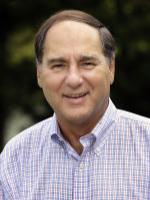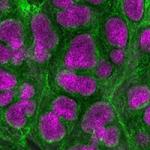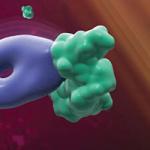
Kenneth Korach, Ph.D.
Scientist Emeritus
Reproductive & Developmental Biology Laboratory / Receptor Biology Group
NIEHS
Research Topics
Mechanisms of estrogen hormone action, effects of endocrine disruptors, hormonal carcinogenesis; reproductive biology; coupling of receptor signal. A variety of diverse chemicals exhibit endocrine disrupting activities. The effects of these environmental substances and their mechanism of action are poorly understood. The research problem is being addressed by using three interrelated experimental approaches. (1) Investigate the structural basis of ligand interactions with the estrogen receptors to more fully understand the importance of compound structure and binding to influence nuclear estrogen receptor interactions, and its role in stimulating estrogenic responsiveness. (2) Analyze the biochemical and molecular properties of the estrogen receptor proteins to determine what signaling processes are involved in their activation and role in biological responses. Evaluate the specificity of the estrogen receptor forms (α and β) on activity and the transcriptome profiling of various environmental compounds. (3) Investigate the expression of estrogen response in uterine and other hormonally responsive tissues and evaluate the involvement of the receptor signaling pathways in the mechanism of tissue stimulation. Such understanding will form a basis towards comparison to different disease states of the tissue(s) regarding toxicity, carcinogenesis and/or functional phenotypic alterations and susceptibilities to disease.
Biography
Kenneth S. Korach is a Scientist Emeritus. He received his Ph.D. in Endocrinology from the Medical College of Georgia where he characterized biochemical properties of estrogen receptors in the pituitary and hypothalamus. He did post doctorial training at Harvard Medical School with Prof.Lewis Engel on a Ford Fellowship. Appointed into the Senior Biomedical Research Service (SBRS) at NIH. Recipient of the Medical College of Georgia Distinguished Alumnus Award, Edwin B. Astwood Award, US Endocrine Society, Keith Harrison Lecture Award, Australian Endocrine Society, Transatlantic Medal, British Endocrine Society, Firkin Research Award, Australian Society of Medical Research, Dale Research Medal, Society of Endocrinology, Beacon Award, Frontiers in Reproduction Woods Hole Research Laboratories, Neena Schwartz Research Award from Northwestern University.
Selected Publications
- Ignar-Trowbridge DM, Nelson KG, Bidwell MC, Curtis SW, Washburn TF, McLachlan JA, Korach KS. Coupling of dual signaling pathways: epidermal growth factor action involves the estrogen receptor. Proc Natl Acad Sci U S A. 1992;89(10):4658-62.
- Lubahn DB, Moyer JS, Golding TS, Couse JF, Korach KS, Smithies O. Alteration of reproductive function but not prenatal sexual development after insertional disruption of the mouse estrogen receptor gene. Proc Natl Acad Sci U S A. 1993;90(23):11162-6.
- Smith EP, Boyd J, Frank GR, Takahashi H, Cohen RM, Specker B, Williams TC, Lubahn DB, Korach KS. Estrogen resistance caused by a mutation in the estrogen-receptor gene in a man. N Engl J Med. 1994;331(16):1056-61.
- Couse JF, Hewitt SC, Bunch DO, Sar M, Walker VR, Davis BJ, Korach KS. Postnatal sex reversal of the ovaries in mice lacking estrogen receptors alpha and beta. Science. 1999;286(5448):2328-31.
- Arao Y, Hamilton KJ, Ray MK, Scott G, Mishina Y, Korach KS. Estrogen receptor α AF-2 mutation results in antagonist reversal and reveals tissue selective function of estrogen receptor modulators. Proc Natl Acad Sci U S A. 2011;108(36):14986-91.
Related Scientific Focus Areas
This page was last updated on Monday, September 30, 2019




